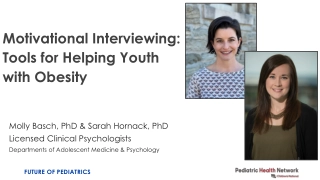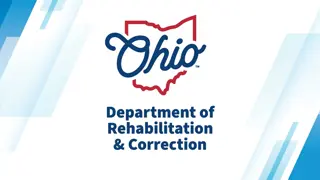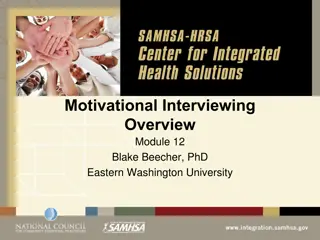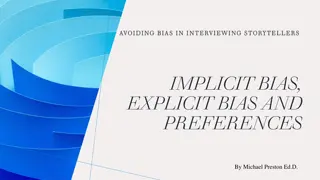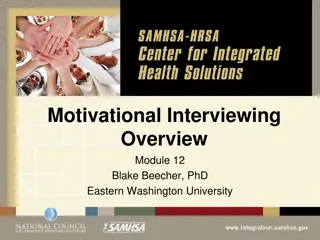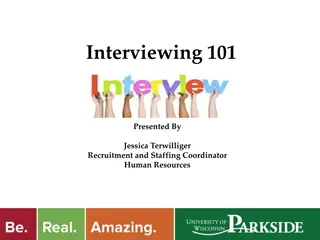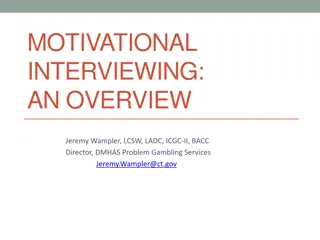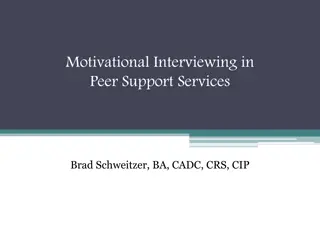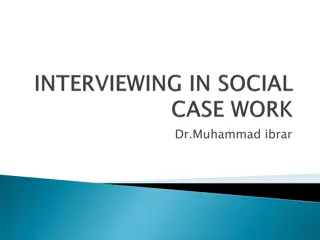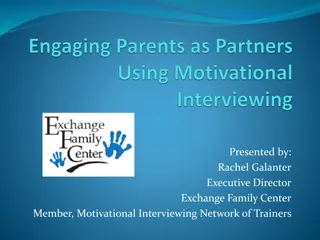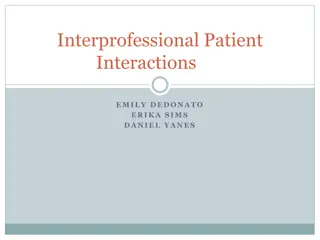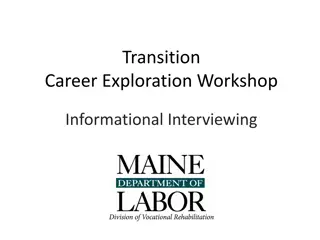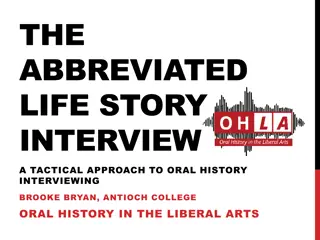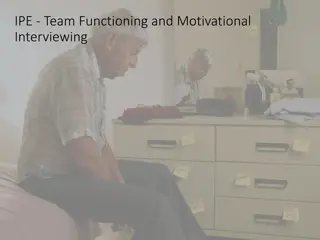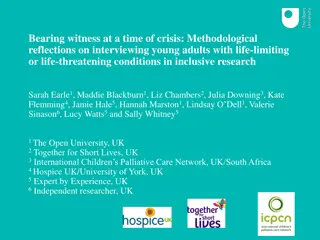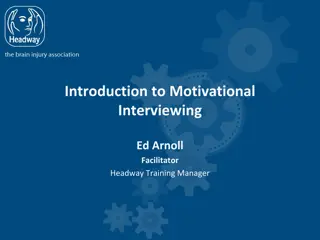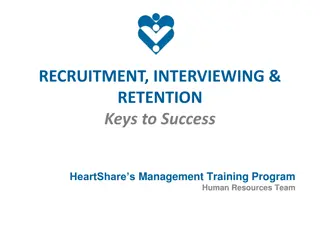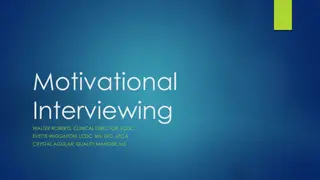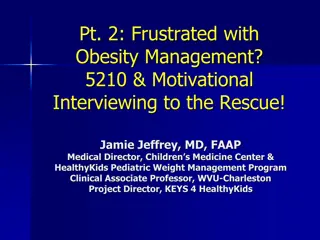
Definition of Applicant in Recruitment Practices
Explore the complexities of defining an applicant in the recruitment process, as discussed in a webinar by North Risk Partners. Learn about the EEOC's challenges in defining an Internet Applicant and the OFCCP's criteria for an Internet Applicant. Gain insights into best practices for identifying and engaging potential candidates in hiring processes.
Download Presentation

Please find below an Image/Link to download the presentation.
The content on the website is provided AS IS for your information and personal use only. It may not be sold, licensed, or shared on other websites without obtaining consent from the author. If you encounter any issues during the download, it is possible that the publisher has removed the file from their server.
You are allowed to download the files provided on this website for personal or commercial use, subject to the condition that they are used lawfully. All files are the property of their respective owners.
The content on the website is provided AS IS for your information and personal use only. It may not be sold, licensed, or shared on other websites without obtaining consent from the author.
E N D
Presentation Transcript
North Risk Partners December Webinar Presented by: Mike Bourgon and Michelle Super
Who is an Applicant? Hiring-Rules of Engagement Best Practices in Interviewing Good Interview Questions Illegal or Inappropriate Interview Questions
Who is an Applicant? Who is an Applicant?
After four years of attempting to clarify the definition of Internet Applicant the EEOC said they have been unable to reach any agreement on a clear definition with three other agencies including the Office of Federal Contract Compliance Programs (OFCCP) and Department of Labor, so they are now saying the definition in the uniform guidelines on employee selection procedures (the one they were trying to clarify) is good enough.
They have concluded that the precise definition of the term Applicant depends upon the user s recruitment and selection procedures. The concept of an Applicant is that of a person who has indicated an interest in being considered for hiring, promotion, or other employment opportunities.
This interest might be expressed by completing an application form, or might be expressed orally, depending upon the employer s practice. Well, thanks a load!
The OFCCP has done a better job of defining Internet Applicant. Its definition is: An Internet Applicant is defined as an individual who satisfies the following four criteria: 1. The individual submits an expression of interest in employment through the internet or related electronic data technologies;
2. The company considers the individual for employment in a particular position; 3. The individual s expression of interest indicates the individual possesses the basic qualifications for the position; and
4. The individual, at no point in the companys selection process prior to receiving an offer of employment from the company, removes himself or herself from further consideration or otherwise indicates that he or she is no longer interested in the position.
The solution to this dilemma is to adopt a procedure similar to the OFCCP s definition. Adapt to what works for you and then be consistent in all cases with it. First, only accept resumes or applications when you have an opening.
Second, have minimum qualifications that must be met before someone can proceed. Third, make any preliminarily-qualified applicant express further interest by filling out an application. This will eliminate the resume broadcaster.
If someone wants to be seriously considered for a position, they will follow these steps. Hopefully this will cut down on the number of applicants you have to track and will make life a bit easier on the HR Department.
1. A persons status is generally not a legal basis for action do not act based upon applicants or employees status or who they are, but rather based upon what they can do, what they cannot do, or what they should do, but fail to do.
2. The hiring process should be free of any indication that the hiring decision will be based in any way upon race, color, religion, gender, familial status, marital status, national origin, age, disability or any other protected characteristic.
3. Hiring decisions should be based on job-related criteria.
4. Be consistent and judge applicants on qualifications, not assumptions or stereotypes.
5. The main thrust of all employment discrimination laws is to make it illegal for employers to treat employees or applicants adversely on the basis of something about themselves that they cannot change, or should not be expected to change. Such factors are called immutable characteristics .
For example, one cannot change ones race or color, gender, age, or national origin, cannot readily change one s disability status, and should not be expected to change one s religion, as a condition of getting or keeping a job.
6. Notwithstanding discrimination laws, employers may always hire the best-qualified candidate for the job.
7. The important thing is to be able to explain how the one who was hired really had the best qualifications and was the best fit for the position in terms of legitimate, job-related factors.
8. That, of course, requires a very close and careful look at the job applications and other information about applicants and a meticulous consideration of all factors that are relevant to the job, such as minimum qualifications, prior experience, availability, and work ethic.
9. A hiring standard that results in exclusion of an applicant on the basis of race, color, religion, age, gender, national origin, disability, or genetic information is suspect and presents a risk of an EEO claim or lawsuit.
10. In general, employers do not have to explain why they are not hiring a particular applicant.
11. It is usually best to restrict any explanations to short and factual, non-inflammatory statements such as, You seem to have some good qualifications. However, the one we hired better fit the requirements we had at this time. Please check back with us about any openings we might have in the future. Thank you.
12. Try to avoid ever using the term overqualified to explain why a person is not suitable for hire.
Best Practices in Interviewing How to Interview Legally and Effectively: Avoid Illegal Interview Questions
We all know how litigious our society has become in the area of employment-related issues. Every recruiter, hiring manager, executive, and department manager must realize that asking illegal interview questions or making improper inquiries can lead to discrimination or wrongful-discharge lawsuits, and these suits can be won or lost based on statements made during the interview process.
Thus, it is important to incorporate risk management into your interviewing process to help minimize your firm's exposure to employment practices liability.
You, or your company, could be accused of asking illegal interview questions or making discriminatory statements or comments that reflect bias. It is also possible to make assurances or promises during an interview that can be interpreted as binding contracts. Recognizing these potential danger areas is the best way to avoid saying the wrong thing during an interview.
Most companies have at least two people responsible for interviewing and hiring applicants. It's critical to have procedures to ensure consistency. Develop interviewing forms containing objective criteria to serve as checklists. Develop lists of interview questions you will ask each candidate.
These practices ensure consistency between interviewers, as well as create documentation to support the hiring decision if a discrimination charge is later filed by an unsuccessful applicant.
To minimize the risk of discrimination lawsuits, its important for interviewers to be familiar with topics that aren t permissible as interview questions. Avoid illegal interview questions. For example, you shouldn t ask a female applicant detailed questions about her husband, children and family plans.
Such questions can be used as proof of sex discrimination if a male applicant is selected for the position, or if the female is hired and later terminated. Older applicants shouldn t be asked about their ability to take instructions from younger supervisors.
It is also important to avoid making statements during the interview process that could be alleged to create a contract of employment. When describing the job avoid using terms like "permanent," "career job opportunity," or "long term."
Interviewers should also avoid making excessive assurances about job security. Avoid statements that employment will continue as long as the employee does a good job. For example, suppose that an applicant is told that, "if you do a good job, there's no reason why you can t work here for the rest of your career." The applicant accepts the job and six months later is laid off due to personnel cutbacks.
This could lead to a breach of contract claim where the employee asserts that he or she can't be terminated unless it's proven that he or she didn t do a "good job." Courts have, on occasion, held that such promises made during interviews created contracts of employment.
These practices will help you hire the most qualified candidate using legal, documented interview methods, including avoiding illegal interview questions. Learn to assess job candidates on their merits. When developing evaluation criteria, break down broad, subjective impressions into more objective factors.
Obviously, you must prepare for the interview by reviewing the application, resume, cover letter, and other materials submitted by the candidate. Try and put the candidate at ease and ask interview questions that can t be answered with a "yes" or "no" response.
These open-ended questions allow applicants to tell all about their skills, knowledge and abilities. Some examples are: "Why are you leaving your current employer? and What made you decide to apply for this position?
Interview questions and issues you want to avoid include the following: asking improper, even illegal interview questions, making discriminatory statements, and making binding contract statements.
The following are examples of interview questions that should be avoided in interviews because they may be alleged to show illegal bias. This is why they are illegal interview questions. Are you a U.S. citizen? (adversely impacts national origin) Do you have a visual, speech, or hearing disability? Are you planning to have a family? When? Have you ever filed a workers compensation claim? How many days of work did you miss last year due to illness?
What off-the-job activities do you participate in? Would you have a problem working with a female partner? Where did you grow up? Do you have children? How old are they? What year did you graduate from high school? (reveals age) As you can see, these rather simple and seemingly non- threatening questions can easily violate one of the aforementioned dangers when conducting interviews.
Good Interview Questions
The following is an extensive list of questions that will help you to identify the behavior and character of the candidate you are interviewing. These questions are divided into specific areas in order to help you target characteristics or behaviors that are most important to the job or company culture.
Using your job description, identify questions within the specific categories that are most important to the position you are hiring for. Asking all of these questions would be too overwhelming and take too long. Highlight those that are the most important and use them as a guideline as you interview your candidate.
Skill Set Skill Set What are the three most important skills that you believe you would bring to our company if you were hired? What skills or areas do you feel that you need to develop further?
Professional Professional How do you build relationships with your peers in the workplace? If you found yourself involved in a negative conversation about a peer, your work, or your boss, how would you handle it? When you have to deliver upsetting news to someone, how do you handle it?

